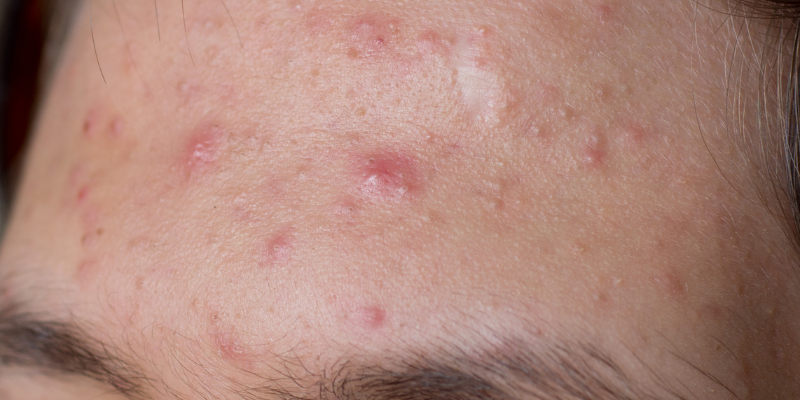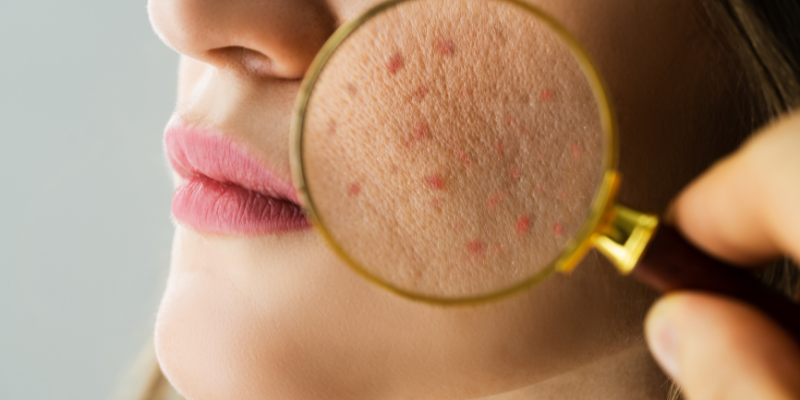How Does Stress Contribute to Acne Development and Breakouts?
Stress is a way of life; the skin, however, is not. Often, nobody could really think of anything bad that it might do to the skin. It is usually associated with bad mood and low energy, but stress can also have a damaging effect on one's skin through triggering its production of oils that cause pores to clog and, consequently, break out. This is why many people experience more acne around those times. Key to managing both is an understanding of the relationship between stress and acne. Helping keep acne in check and the impact of stress at bay, you can use stress-reducing mindfulness techniques, exercise, and good skin care.
The Acne-Stress Connection
Stress affects almost every aspect of our health and is no exception to our skin. When we are in a state of stress, many biological changes occur in the body. One of the most outstanding changes is in hormone production, especially cortisol, the "stress hormone." High cortisol levels during periods of stress cause several skin problems, such as increasing oil production, clogging of pores, and inflammation. This can even worsen conditions like acne. Thus, stress management helps maintain healthy skin and prevent stress-induced skin problems. Regulating stress can also enhance mental and skin health.

Cortisol and Its Effect on Skin End
Cortisol is a hormone produced by the adrenal glands in response to stress. Among its many roles in the body, it helps manage inflammation, but chronically elevated cortisol levels damage the skin due to constant pressure.
Increased Sebum Production
One of the major effects of cortisol on the skin is through the increased production of sebum, which is a natural oil produced by the sebaceous glands. Under normal conditions, sebum hydrates the skin, but its excessive production can cause blocked pores. Blocked pores become breeding grounds for bacteria, thereby developing pimples and breakouts.
Inflammation and Pimple Formation:
This includes inflammation and pimple development; the increased cortisol level makes them increase inflammation in the whole body. This increased inflammation may tend to affect the skin by heightening existing acne, making it more inflamed, red, and swollen. Acne breakouts may also result in its development since the inflammation produced by stress will weaken natural defense mechanisms of the skin, making it more irritable
Impaired Healing Process
Chronic stress doesn't just help form acne; it also hampers the body's ability to heal itself. This includes healing the skin. When stress levels are high, the recovery mechanisms of the body are slowed down, and hence the time taken to heal acne scars and blemishes increases. The pimples themselves may stay longer, and when they finally fade away, the skin may still carry marks or scarring.
How Stress Triggers Acne Outbreaks
Stress does not directly cause acne but creates conditions for it to flare up. Here is how stress can make acne worse:
- Stress-Related Hormonal Imbalance
Stress results in the increased production of cortisol, the "stress hormone. This can bring about hormonal imbalances, which increase sebum production and clog pores, thus creating an environment that fosters the growth of bacteria that cause acne. More frequent breakouts occur in periods of stress.
- Poor Lifestyle Habits
Poor lifestyle habits that stress causes include the consumption of junk food and lack of proper sleep. All these habits contribute to worse acne. For instance, consuming junk food can cause inflammation; sleeping inadequately causes increased cortisol, which makes the skin more challenging to heal and intensifies the breakout.
- Nervous Habits
People tend to engage in habits like picking or touching their faces, where the oils and bacteria transferred may end up blocking pores, thus leading to a breakout. All these may enhance breakouts and continue further damage to the skin.

The Psychological Impact of Acne and Stress
Acne is a physical condition and has major emotional and psychological effects. Acne appearance creates a cycle of worsening the skin condition through stress, and in return, the acne increases emotional distress, which causes more stress. Here's how acne can affect mental health:
Low Self-Esteem
Persistent acne is a major blow to one's self-esteem and self-image. Most people with acne are conscious of their appearance, hence negative thoughts about how others see them. This emotional strain causes more stress, leading to more breakouts, which worsens the feeling of insecurity, thereby creating a vicious cycle. As pressure increases, acne worsens; as acne worsens, stress increases, leading to even worse emotional effects.
Increased Anxiety
Acne can make people anxious, especially when they are in social situations. The fear of being ridiculed or made fun of because of their appearance may increase anxiety levels. This may make them want to avoid social situations or become conscious of their appearance. Anxiety from the fear of acne may make it even harder to deal with skin problems because stress and anxiety cause flare-ups and emotional distress.
Risk of Depression
Acne, in severe cases, causes psychological distress that can lead to depression. People who have chronic emotional distress because of their skin begin to feel hopeless or helpless. Continuous worries over one's appearance, feelings of being judged, and other self-esteem issues lead to symptoms of depression, including feelings of sadness, withdrawal from life, and lack of interest in activities. This creates an overwhelming cycle of psychological and physical stress, which may be difficult to cope with and might result in mental health deterioration.
Conclusion
Stress and acne are intricately linked, and though they form complex relationships, knowing them might help you handle them more effectively. Stress may cause numerous physiological responses, including increased levels of cortisol, hormonal imbalances, and lifestyle changes; all these lead to the emergence of acne. Stress can easily be managed by making healthy lifestyle choices, proper skin care, and mindfulness practices, which lessen the effects of stress on the skin. Never let stress rule your life, nor acne. A proactive approach can help you break the stress and skin issues cycle, leading to a clearer complexion and improved emotional health.












